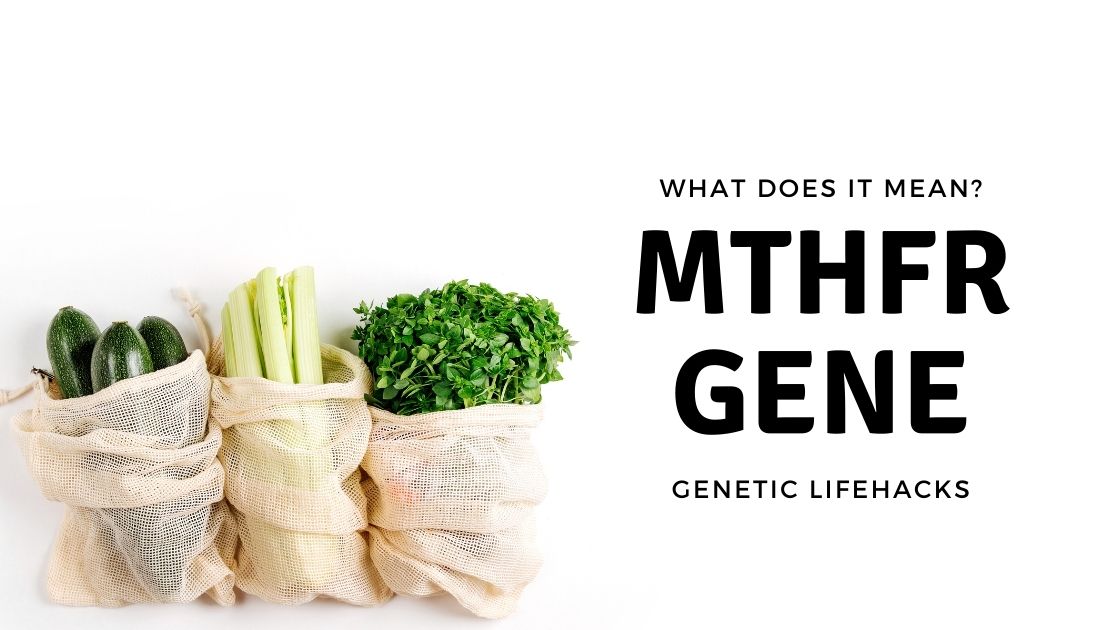Have you ever wondered ‘what happens if I have MTHFR?’
First, let’s clear up a little terminology :-)
Everyone has the MTHFR gene. It’s one of those genes that you can’t live without.
If you’ve read or heard about having MTHFR, people were likely referring to having one of the common variants in the MTHR gene.
There are two common variants: MTHFR C677T and MTHFR A1298C
These variants cause the MTHFR enzyme not to work as well:
- The MTHFR C677T variant decreases the function of the enzyme by 40-70%.
- The MTHFR A1298C variant decreases the function of the enzyme by 10-20%.
This is where it gets a little bit more complicated because the MTHFR enzyme has a lot of other systems in the body that it affects!
The quick explanation is that the MTHFR enzyme is important in how your body processes folate, which is found in foods like leafy greens and lentils.
Methyl groups from the processing of folate then go on to fuel a lot of different reactions throughout the body.
A decreased MTHFR gene function can cause an increase in homocysteine, which increases the risk of heart disease. Other conditions linked to low MTHFR include depression, miscarriage, hormones, and neurotransmitter alterations.
Check out the full article on the Methylation Cycle and MTHFR.
An in-depth explanation along with links to check your genetic raw data.

